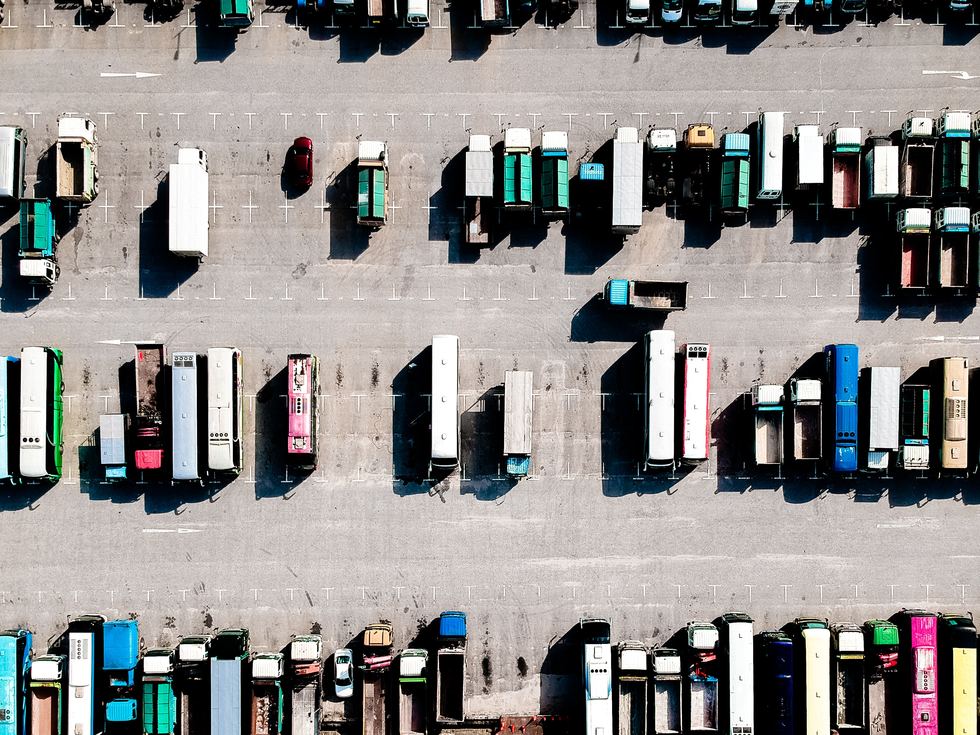Legalizing hemp is one thing, regulating the hemp industry is another. The 2018 Farm Bill explicitly legalized hemp production in the U.S., but transporting it across state lines is still questionable. In fact, the Farm Bill makes it clear that regulations for the hemp industry must be determined first before the movement of hemp can begin. Until then, the legality of hemp transportation still lives in the gray.
For More on The Hemp Bill and CBD check out the below articles:
2018 Farm Bill: A Look at the New Hemp Restrictions and the Still Questionable Legality of CBD
CBD – Somehow Everywhere, Even Walgreens
Awaiting State Regulations for Hemp
The 2018 Farm Bill expressly says “no State shall prohibit the transportation or shipment of hemp or hemp products … through the State,” meaning that states can’t prohibit hemp or hemp products from passing through their state or territory if the hemp is compliant with the Farm Bill. Although this may sound like hemp businesses need not fear state-level enforcement, that’s not necessarily the case. Just as each state has their own cannabis laws and regulations, each state has the power to implement and enforce regulations surrounding hemp – that includes the transportation of it within and through their state.
Currently, California law does not have any restrictions specific to the importation of industrial hemp seeds/plants into California other than they must meet all plant pest quarantines and may be subject to an agricultural inspection for plant pests.
Big Sky and The Risks of Hemp Transportation
However, a lack of regulation isn’t a green light to transport as you wish. Hemp seizures are sporadic and unpredictable, so transportation will always come with risk until proper regulations are in place. Take, for example, the case of Big Sky – a hemp manufacturing company in Colorado. Here, Big Sky purchased about 7k pounds of compliant hemp from a licensed hemp cultivator in Oregon and contracted with a third party to ship the hemp from Oregon to Colorado. While the truck driver was passing through Idaho, State Police stopped the driver, seized the hemp, and slapped him with felony trafficking cannabis. Even though the certificate of analysis (COA) showing that the hemp came from a lawful source in Oregon, there is no way, roadside, to actually verify the COA or that the product is hemp. In fact, hemp and marijuana smell the same and looks the same.
The Big Sky case made it to federal court where it was held that the 2018 Farm Bill only prevents states from prohibiting the transportation of hemp in accordance with state and USDA hemp regulatory plans provided for in the Bill, and because no such plans had yet been approved, the court reasoned, “the hemp that was seized . . . could not possibly meet that standard because no ‘plans’” were yet in place.
Big Sky’s appeal is currently pending in the Ninth Circuit.
Needless to say, hemp companies are eager to take advantage of the 2018 Farm Bill, but understandably, are hesitant to transport hemp across certain state lines if doing so will expose them to seizure, litigation or even prosecution. Companies may decide that the lesser evil is to wait until the Ninth Circuit weighs in, or for the state or USDA plans take effect. In any event, here are some generalities you need to know if you are transporting hemp.
Driving Hemp Across State Lines
If you’re going to drive the hemp, then plan your driving route carefully by avoiding states where hemp isn’t legal yet. It would probably be most helpful if you also consult with logistic specialists who specialize in hemp.
Mailing Hemp
USPS: In March, the USPS quietly issued an advisory on “Acceptance Criteria for CBD Oil and Products Containing CBD,” a copy of which can be found here. In this advisory, the USPS acknowledges the legal status of hemp-derived CBD and provides temporary “acceptance criteria” for demonstrating when a mailing of CBD is compliant with the 2014 Farm Bill.
FedEx: FedEx is a no go. Hemp is listed as a “prohibited item” on their terms and conditions dated January 2019. They’re a private company so they can set their own policies.
UPS: UPS is also a private company – but interestingly UPS doesn’t mention hemp in its prohibited items list, only mentions cannabis. However, beware, as we learned from Big Sky, the lack of regulation does not constitute a green light.
The Big Sky case is a good reminder that legalization isn’t much without regulation. The 2018 Farm Bill did not flip a switch so much as it started a process that looks like it may be long and full of litigation over the interaction between state and federal law. Here we go again…
If you have a hemp business and need guidance, give the attorneys at Manzuri Law a call to ensure your business is operating properly and you won’t suffer the same result as Big Sky.
Related Links:
- Closing the Hemp Loophole: Congressional Proposals Target Intoxicating Cannabinoids
- Federal Hemp Law Will Reshape the Industry in 2026: What Operators Need To Know Now
- California Submits Proposed Hemp Regulations to the USDA – If Approved, Compliance Will be Key
- Much Ado About the DEA Interim Final Rule; What’s The Deal With Hemp?
Disclaimer: This article has been prepared and published for informational purposes only and is not offered, nor should be construed, as legal advice.

